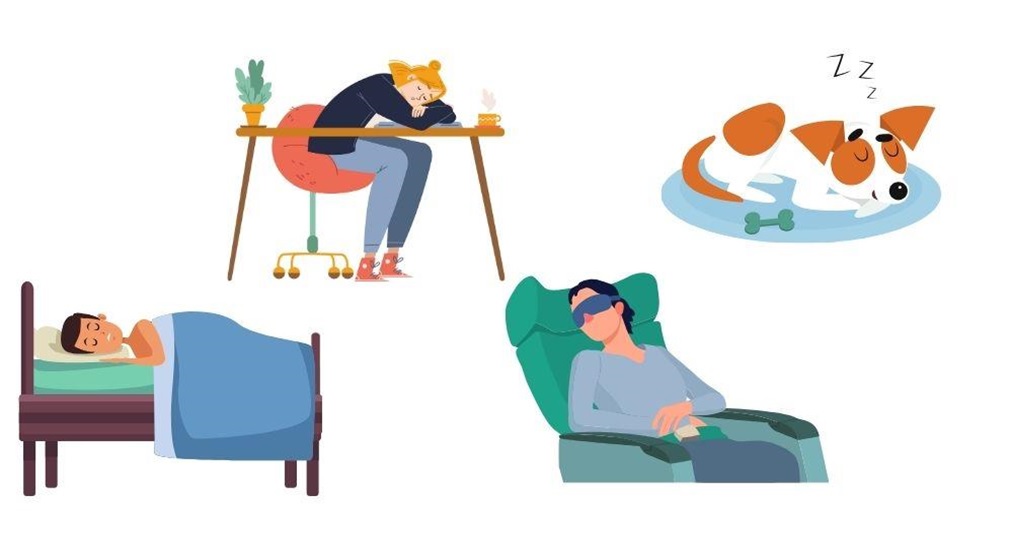Imagine a world where the line between wakefulness and sleep is blurred, where the simple act of staying awake becomes a constant battle. This world is a reality for those living with narcolepsy, a chronic neurological disorder that affects the brain’s ability to regulate sleep-wake cycles. In this article, we will explore the impact of narcolepsy on daily life, shedding light on the challenges faced by those navigating a world where sleep can strike at any moment.

The Challenges of Living with Narcolepsy
Living with narcolepsy can present a myriad of challenges that impact daily life in various ways. One of the most significant challenges is the constant struggle with excessive daytime sleepiness. People with narcolepsy often find themselves unable to stay awake or alert during the day, no matter how much they slept the night before. This can lead to difficulties in concentrating at work or school, as well as potential dangers when driving or operating machinery.
Another challenge of living with narcolepsy is the unpredictable nature of the condition. Sudden sleep attacks can happen at any time, making it difficult to plan ahead and participate in activities without fear of falling asleep unexpectedly. This can lead to feelings of isolation and frustration, as individuals with narcolepsy may have to cancel plans last minute or miss out on social events.
Furthermore, the stigma surrounding narcolepsy can also pose a challenge for those living with the condition. Misconceptions about narcolepsy being a sign of laziness or lack of motivation can lead to feelings of shame and embarrassment. It’s important for individuals with narcolepsy to educate others about the realities of the condition and advocate for understanding and support. By raising awareness and seeking proper treatment, those living with narcolepsy can better manage the challenges they face on a daily basis.
Managing Symptoms and Treatment Options
Narcolepsy is a neurological disorder that can have a profound impact on daily life. People with narcolepsy often experience excessive daytime sleepiness, sudden muscle weakness or paralysis (known as cataplexy), vivid dream-like hallucinations, and disrupted nighttime sleep. These symptoms can make it challenging to stay awake and alert throughout the day, leading to difficulties at work, school, and in social situations.
There are several treatment options available to help manage the symptoms of narcolepsy. Medications such as stimulants, antidepressants, and sodium oxybate can help improve wakefulness, reduce cataplexy, and improve nighttime sleep. Behavioral therapies, such as creating a regular sleep schedule, taking short naps during the day, and avoiding caffeine and alcohol before bedtime, can also be effective in managing symptoms.
It is important for individuals with narcolepsy to work closely with their healthcare providers to develop a personalized treatment plan that meets their specific needs. By finding the right combination of medications and behavioral strategies, people with narcolepsy can effectively manage their symptoms and improve their quality of life. It’s essential to prioritize self-care, listen to your body, and reach out for support when needed.
Impact on Relationships and Work Performance
Having narcolepsy can significantly impact relationships and work performance due to the unpredictable nature of excessive daytime sleepiness and sudden sleep attacks.
In personal relationships, individuals with narcolepsy may struggle to stay awake during social gatherings or important conversations, leading to misunderstandings and frustration. This can create feelings of isolation and guilt as they try to navigate through daily interactions while battling overwhelming fatigue.
At work, narcolepsy can impede productivity and concentration, making it challenging to meet deadlines or perform tasks efficiently. The fear of falling asleep at work can also cause anxiety and stress, affecting job satisfaction and overall performance.
Despite these challenges, with proper management strategies and support from loved ones and colleagues, individuals with narcolepsy can learn to cope with the impact on their relationships and work performance. By practicing good sleep hygiene, taking prescribed medications, and seeking accommodations in the workplace, they can strive to lead fulfilling and successful lives.
| Challenges in Relationships | Struggles with staying awake during social gatherings and conversations |
| Impact on Work | Decreased productivity and concentration, heightened anxiety |
Strategies for Coping with Daily Life
Living with narcolepsy can present unique challenges in daily life. The unpredictable nature of excessive daytime sleepiness can disrupt regular routines and affect various aspects of a person’s life. Below are some strategies that can help individuals manage the impact of narcolepsy on their daily lives:
- Establishing a Consistent Sleep Schedule: Maintaining a regular sleep routine can help regulate sleep patterns and improve overall quality of sleep.
- Taking Short Nap Breaks: Taking short, strategic naps throughout the day can help combat sudden bouts of sleepiness and improve alertness.
- Managing Stress: Stress can exacerbate symptoms of narcolepsy, so finding healthy ways to cope with stress through relaxation techniques or therapy can be beneficial.
In addition to these strategies, it’s important for individuals with narcolepsy to communicate openly with their healthcare providers to explore treatment options and develop a personalized management plan. By incorporating these strategies into daily life, individuals can navigate the challenges of narcolepsy with greater ease and ensure a better quality of life. As we conclude our exploration of the impact of narcolepsy on daily life, it is clear that this neurological disorder presents unique challenges that can significantly disrupt everyday routines. From sudden bouts of uncontrollable sleepiness to frequent disruptions in sleep patterns, individuals battling narcolepsy must navigate a complex landscape of symptoms that can affect various facets of their lives. By shedding light on the struggles faced by those living with narcolepsy, we hope to foster greater awareness and understanding of this often misunderstood condition. Let us continue to support and empower those affected by narcolepsy, as they navigate the complexities of daily life with resilience and courage.
